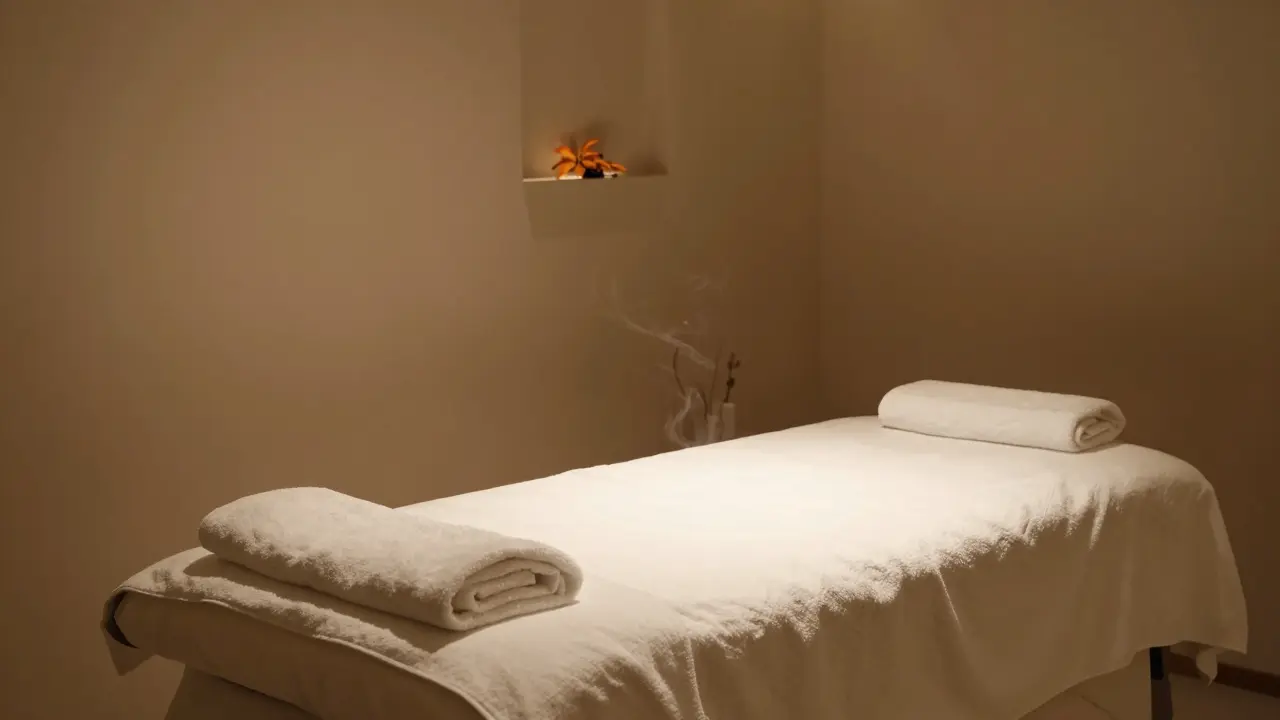Picture this: you grab that delicious-smelling body scrub and swipe it across your cheeks, thinking smoother, glowier skin is moments away. Except, minutes later, you’re red, your skin stings, and suddenly what was supposed to be a treat feels more like a regret. This isn’t just bad luck. Lots of folks are tempted to use body scrubs on their faces, drawn in by their scents, pretty packaging, and promises of baby-soft skin. The truth? Using body scrubs on your face is like using a chainsaw to slice bread — overkill and not worth the risk.
Why Are Body Scrubs Too Harsh for the Face?
Body scrubs are made to tackle thicker, tougher areas like elbows and feet. They often use large, gritty particles—think crushed apricot kernels or sea salt. Facial skin, on the other hand, is much thinner and more sensitive. The skin on your cheeks and under your eyes is especially delicate, less than half the thickness of the skin on your arms or legs.
Using a rough body scrub here isn’t gentle exfoliation. It’s more like putting your face through sandpaper. Studies from dermatology clinics show up to 60% of people who use harsh scrubs on their face experience microtears or broken capillaries. These injuries are tiny, but over time, they add up — causing redness, irritation, and sometimes even long-term texture changes.
What Skin Problems Can Be Triggered by Body Scrubs?
When you rub a gritty body scrub on your face, you’re setting yourself up for more than just a pink flush. Damage can show up as flakiness, dryness, and swelling. Some scrubs, packed with fragrances and oils, clog pores, making breakouts worse — that’s the exact opposite of what you want if you’re fighting acne or blackheads.
Let’s get specific. If you already have a skin condition like rosacea or eczema, rough scrubbing can throw your skin’s barrier into chaos. Even folks with "normal" skin risk looking blotchy and irritated for days. In one 2024 survey by Skincare Daily, nearly 1 in 5 participants reported breakouts after using a body scrub on their face. The worst part: repeatedly inflaming your skin speeds up aging, making wrinkles stand out sooner. Not a great trade.
How Do Exfoliating Particles Differ in Body and Face Scrubs?
Body scrubs are built to punch through tough skin, so their ingredients get aggressive: chunky salt, jagged nutshells, and rough sugar crystals. These work fine on your heels, but on facial skin, they’re trouble. If you look at a body scrub ingredient list, chances are you’ll spot big, uneven exfoliants that scrape the skin’s surface. The damage isn’t always obvious right away, but under a microscope? You’d see tons of micro-tears.
Facial scrubs, in contrast, usually feature smooth, tiny beads (like jojoba spheres) or gentle chemical exfoliants, which dissolve dead skin instead of scrubbing it off. Dermatologists agree — what feels "refreshing" in the shower might be ruining your face’s natural defense system if picked wrong.
Which Skin Types Face the Most Risk?
Some people have skin that seems to handle anything. But most of us — sensitive, combination, or dry types in particular — suffer when harsh products touch our faces. People with active acne, rosacea, eczema, or even sunburn should steer clear of any gritty scrub not specifically labeled "for face." Anecdotally, I’ve seen friends hoping to fix a stubborn patch instead end up with flare-ups lasting weeks. If your skin stings, turns red, or feels tight after exfoliating, that’s not "normal." It’s your face asking for mercy!
Age is a huge factor too. Mature skin gets thinner and slower to heal, making over-exfoliation extra risky. Teens, though oily, can actually sabotage their barrier early. The most common thing I hear after a mishap is, “I thought a good scrub was supposed to unclog my pores, but now they look worse.”
Is It Possible to Over-Exfoliate with Body Scrubs?
Absolutely. It happens faster than you think. Body scrubs aren’t just about friction; they’re often loaded with chemical exfoliants, fragrances, and even alcohols that strip the skin’s protective oils. When you combine rough scrubbing with chemical ingredients meant for legs or arms, you end up stripping layers your face needs to stay resilient.
Here’s a wild statistic: the skin on your face can take up to 28 days to fully renew itself, but over-exfoliation cuts into healing time. That’s why so many people cycle through irritation — every time red fades, they exfoliate again, never letting the skin recover. This sets off a cycle called "inflammaging," a real thing documented by European dermatologists, where repeated minor damage speeds up skin aging.
Could Scrubbing the Face Lead to Scarring or Pigmentation?
When body scrubs cause micro-cuts and abrasions, there’s a real risk of scarring, especially if you have darker skin. Any time the skin is injured — even lightly — you provoke the body’s pigment response, possibly leaving dark marks that take months to fade. Studies on post-inflammatory hyperpigmentation show it happens in up to 40% of sensitive-skin individuals after repeated mechanical trauma.
And if you suffer breakouts, using a body scrub can enhance post-acne marks. Instead of helping spots fade, you end up making scars more noticeable. If you love your complexion, keeping things gentle makes far more sense.
Do Dermatologists Warn Against Using Body Scrubs on the Face?
Dermatologists get this question almost every week. Nearly all say a hard no to using body scrubs on your face. If you want exfoliation, the advice is simple: “Use products made for facial skin." When mechanical exfoliation is desired, they recommend super-fine particles, low concentration, and not more than once or twice a week. Even better? Alternate with chemical exfoliants like lactic acid, which dissolve dead skin cells without scraping.
I once watched Dr. Angela Kraus, a top dermatologist, break apart three popular scrubs on live TV. The body formulas felt like crushed gravel, while the facial ones turned to a silky cream between her fingers. That’s the clear difference — and it’s not something the big skincare brands want you to know.
Can Fragrance and Additives in Body Scrubs Harm Facial Skin?
One thing that usually flies under the radar: what goes into body scrubs besides the grit. We’re talking heavy fragrances, dyes, and intense essential oils — all risks for allergy and irritation. On body skin, you might get away with it. On your face? Expect redness or even allergic rashes.
Here’s a real-world example: Lena once used a coconut vanilla body scrub on her face. It smelled heavenly, but within hours, her cheeks were blotchy and itchy. We found out later that it contained both artificial fragrance and cinnamon oil, two top triggers for facial irritation. Manufacturers rarely test these blends for facial use, and that’s one gamble your skin doesn’t want to take.
What About Natural DIY Body Scrubs for the Face?
It’s tempting to whip up a homemade exfoliator from coffee grounds, sugar, or salt and go to town. You’ll find a hundred recipes on social media. Sounds harmless, right? Actually, it’s even riskier than a store-bought scrub. Angela, a holistic esthetician I know, has treated clients with swollen faces after a dash of lemon juice and baking soda “mask.”
DIY scrubs rarely achieve uniform particle size, so you end up poking holes in the skin barrier by accident. Lemon juice kicks in another problem: it’s acidic and photosensitizing, making you more prone to burns and uneven skin tone. The safest bet for a glow-up is a gentle, fragrance-free exfoliant designed for faces, not the kitchen sink.

Can Using Body Scrubs Accelerate Aging?
If you grab a loufa and body scrub regularly on your face, you’re paving the fast lane to wrinkles. Scrubbing away natural oils strips your barrier, letting water escape and skin dry out. The famous Nurses’ Health Study linked daily harsh exfoliation with greater visible fine lines, especially in women over 40. Collagen and elastin—the proteins that keep your skin flexible—don’t stand up well to daily abrasion.
Repeated microtrauma triggers ongoing inflammation, which speeds up the whole aging process. So, if you’re thinking a scrub = glow, remember that smooth today might mean saggy sooner than you want down the line.
How Often Should You Actually Exfoliate Your Face?
Most skin experts recommend exfoliating 1-2 times per week at most, and only with a formula designed for faces. Your skin can’t replace lost cells instantly. Overdoing it—especially with a scrub meant for the body—delays healing and increases the risk of everything from infection to chronic red patches.
If your skin stings or feels hot after exfoliating, you’ve gone too far. It’s safer to use a gentle product every other week than constantly trying to sandpaper away texture. And always, always layer a basic moisturizer on after rinsing off any exfoliant to help your skin recover.
How to Choose the Right Exfoliator for Facial Skin
Look for a scrub labeled for faces, and check that it contains round beads or gentle chemical ingredients like lactic or mandelic acid. No salt, no nutshells, no sharp bits. Check the ingredient label: unscented is safest; simple is best. If your skin type is dry or sensitive, stick to enzyme exfoliants or very mild acids, not physical scrubs at all.
Sometimes you need targeted advice. If redness, flaking, or roughness are ongoing, see a dermatologist or trusted esthetician before launching into any new exfoliation routine.
Are There Any Body Scrubs Safe for Facial Use?
Brands sometimes claim their body scrubs are "multi-use," but very few actually are. Unless the scrub specifically says "face and body" and passes a sensitive skin patch test, it’s best to avoid. In spa settings, I’ve noticed even "mild" body scrubs can make facial skin tingle or itch. Trust the label, not the hype. If in doubt, ask your esthetician for a sample on your inner wrist before going near your face.
What Ingredients Should You Watch Out For?
Common red-flag ingredients in body scrubs include:
- Apricot kernels (jagged edges)
- Sugar crystals (too rough)
- Sea salt (abrasive and drying)
- Heavy fragrance (irritating for many)
- Essential oils, especially citrus or cinnamon
Table: Most Problematic Body Scrub Ingredients for Facial Use
| Ingredient | Risk |
|---|---|
| Crushed Apricot Kernel | Microtears, inflammation |
| Sea Salt | Burning, dehydration |
| Sugar Crystals | Surface scratches |
| Strong Fragrance | Allergic rash, redness |
| Citrus Oil | Photosensitivity |
Can You Repair Facial Skin After Using Body Scrub?
If you’ve already run a body scrub across your cheeks, don’t panic. Most surface irritation fades with TLC. Switch to a fragrance-free, plain cleanser. Add layers of light, non-irritating moisturizer, and avoid exfoliating for at least a week. If you see swelling, blistering, or ongoing signs of infection, seek advice from a skin professional right away.
Some swear by overnight creams with ceramides or hyaluronic acid to help the skin barrier bounce back. Stay out of the sun, drink plenty of water, and be gentle — your skin can usually recover with a little patience, as long as you don’t repeat the cycle.
Should You Avoid Facial Scrubs Altogether?
It’s not about swearing off exfoliation. It’s about being smart. Use the right product for the right part of your body. There are facial scrubs out there that are safe, effective, and made precisely for your delicate skin. Or, opt for chemical exfoliants like glycolic pads or lactic acid serums. These loosen dead skin without turning your cheeks raw.
If you’re worried about pore clogs or dull skin, weekly gentle exfoliation brings better, lasting results than a monthly scrub attack. When in doubt, simple skincare routines almost always outperform complicated ones.
Better Alternatives for Gentle Facial Exfoliation
Ready to ditch the body scrub? Here are safer paths: Look for enzyme-based masks (papaya or pumpkin), smooth gel-like scrubs with round jojoba beads, or a mild AHA/BHA toner. Konjac sponges—a favorite at our house—provide soft physical exfoliation without scratching.
Even a simple microfiber cloth works for some people, used with cool water and light pressure. Don’t overthink it. A glow is all about patience and consistency, not grit and grind.
FAQ
- Can using a body scrub on my face damage my skin?
Yes, body scrubs are usually too abrasive for facial skin and can cause irritation, microtears, and redness. - How often should I exfoliate my face?
Ideally, exfoliate 1-2 times per week with a product designed for facial use, not for the body. - Is it safe to use DIY scrubs on my face?
DIY scrubs using rough materials like sugar or salt are risky for delicate facial skin and can lead to irritation or scratches. - What ingredients should I avoid in face exfoliators?
Avoid large, sharp particles like nutshells or salt, and skip products with heavy fragrance or citrus oils. - Can my skin recover after a body scrub mishap?
Most irritation fades if you stop exfoliating, use gentle cleansers, and keep skin moisturized, but serious cases may need a dermatologist’s help.



